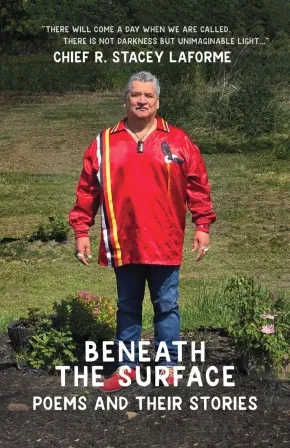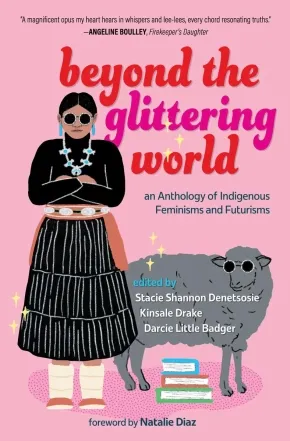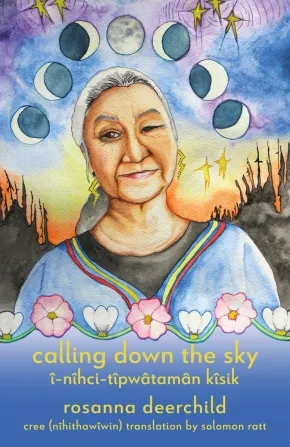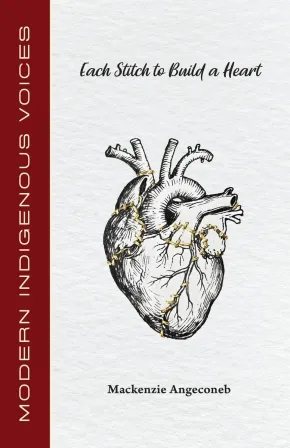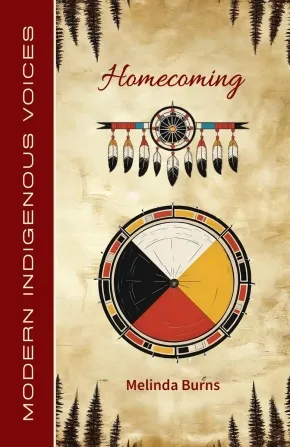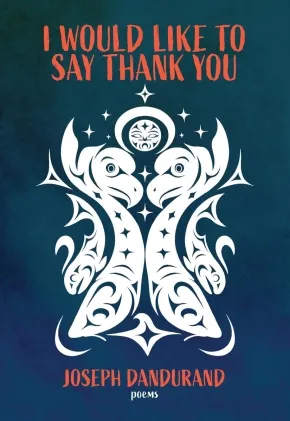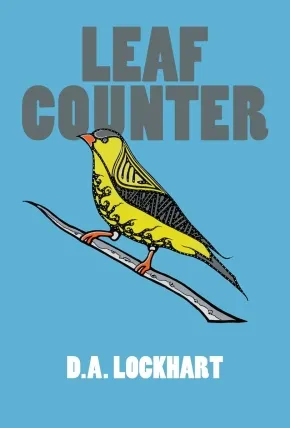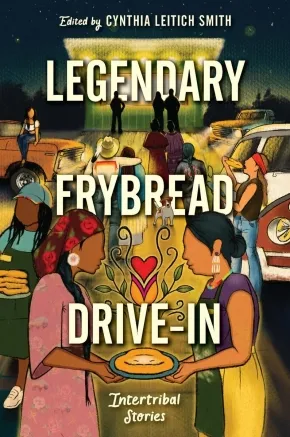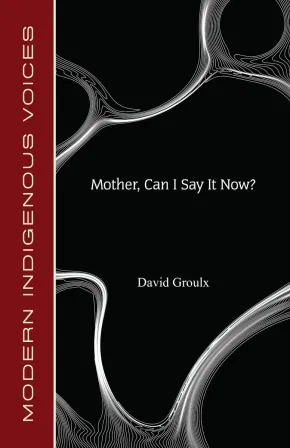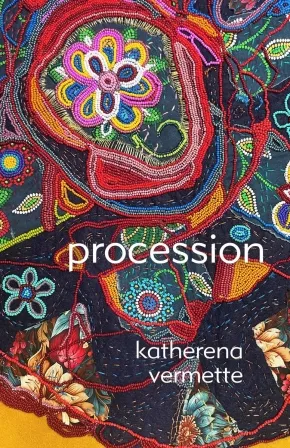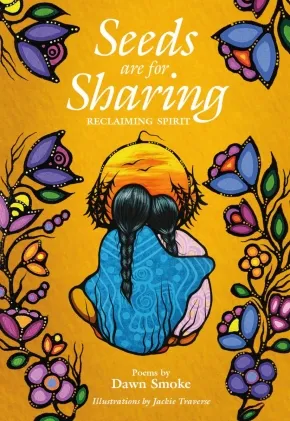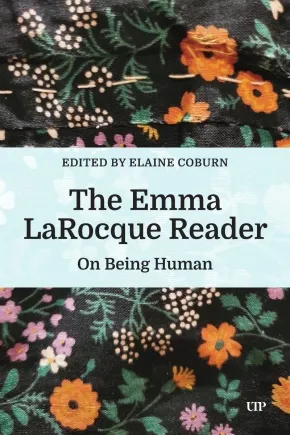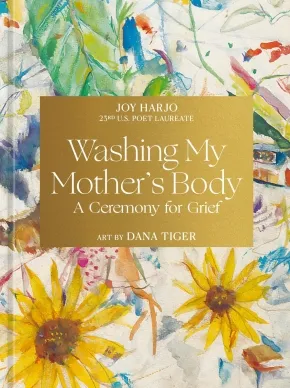
Poetry
1
-
15
of
132 Results;
Sort By
Go To
of 9
Beaver Hills Forever: A Metis Poetic Novella
$21.95
Format:
Paperback
Text Content Territories:
Indigenous Canadian; Métis;
Reading Level: N/A
ISBN / Barcode: 9781834050089
Synopsis:
Synopsis:
An irreverent and playful novella of Metis voices that reflects the complexities of contemporary prairie life
Conor Kerr's 2024 novel Prairie Edge was a finalist for both the Giller Prize and the Atwood Gibson Writers' Trust of Canada Fiction Prize. His latest book, Beaver Hills Forever, takes a riotous, uncompromising look at the intertwined lives of four characters, each an abstract expression of the few paths available to Metis people on the Prairies. In alternating poetic verses, Buddy, Baby Momma, Fancy University Boy, and Aunty Prof share their inner dreams, hardships, delusions of grandeur, and existential plights. While the messy day-to-day is created by their own doing, the lives of these four individuals are doubly compromised by Canada's colonial education system and resource extraction industries.
A beguiling and genre-bending work, Beaver Hills Forever offers a moving, necessary exploration of education, labour, and the dynamic, ever-changing bonds that bring us back to each other. Here is a diverse, funny, pitch-perfect chorus of voices that rings loud and true over the wide prairie landscape.
Reviews
"Not every Metis kid / Needs a sad story," says a character in Conor Kerr's propulsive and deeply entertaining new work, where each bone-clean sentence holds a galaxy of stories in its marrow. Kerr is part of a vital contemporary movement that is reimagining what our literatures can be and what they can do. Beaver Hills Forever is a reminder that laughter and passion are as much a part of the narrative as struggle. In these pages, you'll find voices that demand to be heard, felt, and remembered." — Carleigh Baker, author of Last Woman and Bad Endings
"Much like his prose, Conor Kerr's Beaver Hills Forever imbues the language of everyday Indigenous life with a poetic charm that is just incredibly readable and relatable. This book is truly multitudinous: a love story, an anti-love story, a critique of neoliberalism, an ode to the Prairies, and, above all, proof that even our smallest desires are worthy of sustained poetic consideration." — Billy-Ray Belcourt, author of Coexistence
"Beaver Hills Forever is full of raunch and riot. Conor Kerr's ability to gravitate around the embodied truths of institutional whiteness, class, settler colonization, and the Indigenous (Metis) experience in the moraine of amiskwaciy is rebellious in its desire to not pathologize or rationalize the violent backdrops of its animate setting. With his skilled hand, Kerr makes sure there is "room for [all] in the digital economy of the Future." — Joshua Whitehead, author of Jonny Appleseed
"Aho, fancy reader! Welcome to Conor Kerr's Beaver Hills Forever. We'll laugh, we'll cry. We'll smoke, we'll die. Etc, etc. Beaver Hills Forever is funny, heartfelt, poetic, badass. It's Bald Boy, Goodbye, Sad Story, Indigenous Canon. Etc, etc. Magpie cackles, Metis literatures, Aunty Prof wonders, realizes, smudges, feel-good energy. Fuck all the ongoing bullshit internal politics and academic distortion and just hear the truth, etc, etc." — Jordan Abel, author of Empty Spaces and NISHGA
Additional Information
88 pages | 6.00" x 9.00" | Paperback
Beneath the Surface: Poems & Their Stories
$29.95
Format:
Paperback
Text Content Territories:
Indigenous Canadian; First Nations; Anishinaabeg; Ojibway; Mississaugas;
ISBN / Barcode: 9781990735875
Synopsis:
Synopsis:
Chief Stacey Laforme, an esteemed Indigenous leader and storyteller, breathes life into every poem and story, drawing upon his deep cultural roots. Rich with the essence of his soul, the poems in Beneath the Surface capture the moments and emotions that have shaped him, offering a poignant exploration of identity, resilience, and hope. Through humour and pain, Laforme invites readers to not just read, but to truly feel the weight and wisdom carried within each verse.
This collection goes beyond poetry, providing rich backstories and leadership insights that contextualize the verses. As in his earlier collections, Living in the Tall Grass and Love, Life, Loss and a little bit of hope, Laforme once again extends an invitation to readers, encouraging them to see the world through Indigenous eyes. Themes of peace, humanity, grief, and trauma are woven throughout the book, creating a tapestry of reflection, healing, and ultimately, hope.
Beneath the Surface serves as both a deeply personal reflection and a call for greater understanding and connection, illuminating the complexities of life through the lens of Indigenous wisdom and storytelling.
At the end of this book, this journey, Laforme seeks to help you better answer the following questions. Who was I, Who am I, and Who do I want to be? As a person, a people, a country, a world, who do we want to be?
Additional Information
192 pages | 8.50" x 5.50" | Paperback
Beyond the Glittering World: An Anthology of Indigenous Feminisms and Futurisms
$29.50
Format:
Paperback
Text Content Territories:
Indigenous American; Native American;
Reading Level: N/A
ISBN / Barcode: 9798890920300
Synopsis:
Synopsis:
From adventures in Indigenous futurism to tales of first love, the stories and poems of Beyond the Glittering World proclaim and celebrate a rising generation of Native American storytellers.
Beyond the Glittering World brings together twenty emerging and established Native women writers and writers of marginalized genders, including Moniquill Blackgoose, Heid E. Erdrich, A.J. Eversole, Chelesa Hicks, and D. Daye Hunter. Immersing readers in worlds as varied as their authors, this collection presents an array of singular voices at their genre-bending, boundary-breaking, devastating, and joyous best.
Reviews
"An evocative compilation of voices pondering Indigenous futures and the shape of Indigenous love. Beyond the Glittering World holds a healthy dose of gender-bending, genre-challenging, future-hoping might. This anthology is a welcome addition to the field of Indigenous anthologies.”—DEBORAH JACKSON TAFFA, Whiskey Tender
Additional Information
240 pages | 5.25" x 8.00" | Paperback
Calling Down the Sky: Tenth Anniversary Edition
$24.95
Text Content Territories:
Indigenous Canadian; Métis; Inuit; First Nations;
ISBN / Barcode: 9781552455159
Synopsis:
Synopsis:
A tenth anniversary bilingual edition in English and Cree of Rosanna Deerchild’s stunning collection about the intergenerational impacts of the Canadian residential school system.
you want me to
share my story
ok then
here it is
here in the unwritten
here in the broken lines
of my body that can never forget
In Calling Down the Sky, poet Rosanna Deerchild viscerally evokes her mother’s experience within the residential school system, the Canadian government’s system of violently removing Indigenous children from their homes, families, and languages in an explicit attempt to destroy Indigenous cultures and identities. With precise and intricate poetry, Deerchild weaves together the story of her mother’s childhood and Deerchild’s memories of her mother: her love of country music, her attempts to talk about what happened to her, how tightly she braided her daughter’s hair on the first day of school. In doing so, Deerchild illustrates the disruptive and devastating impacts of the residential school system on generations of families while also celebrating the life and culture of her mother and other survivors.
Published for the first time in a bilingual edition of Cree and English, in time for the tenth anniversary of the original publication, Calling Down the Sky is an intimate and gorgeously evoked reckoning with a horrifying part of North American history.
Reviews
“Rosanna Deerchild’s poems roll off the tongue as easy as old country songs. With her deft hand, Deerchild finely tunes every word and weaves them together as intimately as she braids her girls’ hair. Together, these poems create a story that sings with beautiful tension, amazing resilience, and love as big as the sky." - Katherena Vermette, Métis Writer
"The poetry collection, called calling down the sky, describes personal experiences with the residential school system in the 1950s and the generational effects it had." - CBC
"This poetry collection is fierce, raw and candid. It is also visceral, intricate and, above all, illuminating. By recounting her mother’s residential school experience in a powerfully poetic narrative, Deerchild expertly illustrates the heartbreaking trauma of that tragic saga and how it complicates relationships over generations. By beautifully and elaborately exploring those relationships and that devastating history, she finds and celebrates the resilient and hopeful spirit that many residential school survivors, like her mother, have managed to retain in the face of horror and torment. As a result, calling down the sky is an essential read in understanding the true modern history of this land and in honouring the people who survived it.” - Waubgeshig Rice
Educator Information
Bilingual: English and Cree
Additional Information
96 pages | 5.50" x 8.50"
Each Stitch to Build a Heart
$19.95
Format:
Paperback
Text Content Territories:
Indigenous Canadian; First Nations; Anishinaabeg; Ojibway; Lac Seul;
Reading Level: N/A
ISBN / Barcode: 9781772312577
Synopsis:
Synopsis:
The central theme of this poetry collection revolves around the idea that each individual is shaped by the connections they forge with others throughout their lives. Each poem serves as a tribute to the relationships that influence us, weaving a rich tapestry of shared experiences and emotions. The collection is guiding readers through a journey of reflection and introspection. Each poem follows a distinct outline: it begins with a cherished memory that encapsulates the essence of the relationship, then delves into the significance of that bond and what it has taught us. Next, the poems explore the evolution of these connections—whether they have transformed, faded away, or remain vibrant in our lives. As the verses unfold, they evoke sensory reminders of these individuals—objects, places, or moments that bring them to mind—while also celebrating the qualities we admire in them. The poems culminate in a heartfelt exploration of their lasting impact on our identities and the permanent marks they leave behind. Each poem becomes a mirror, inviting readers to consider their own relationships and the intricate ways in which these connections shape who they are. Through this collection, we are reminded that we are, in many ways, a mosaic of everyone we have loved, learned from, and lost along the way.
Educator & Series Information
This book is part of the Modern Indigenous Voices series.
Additional Information
96 pages | 5.50" x 8.50" | Paperback
Homecoming
$19.95
Format:
Paperback
Text Content Territories:
Indigenous Canadian; First Nations; Haudenosaunee (Iroquois); Kanyen'keha:ka (Mohawk);
Reading Level: N/A
ISBN / Barcode: 9781772312485
Synopsis:
Synopsis:
Homecoming is a poetry collection that reflects our human journey as we grow and learn, and author’s personal journey through childhood, marriage, divorce, parenthood, and parents’ old age, as well as the author’s quest to reclaim and celebrate her Native heritage. The poems in Homecoming are grouped according to the four directions of the Medicine Wheel: East for Beginnings, South for Innocence, West for Going Within, North for Elder and Wisdom, plus three poems for the Centre, the Great Mystery.
Educator & Series Information
This book is part of the Modern Indigenous Voices series.
Additional Information
88 pages | 5.50" x 8.50" | Paperback
I Would Like to Say Thank You
$19.95
Format:
Paperback
Text Content Territories:
Indigenous Canadian; First Nations; Salish; Coast Salish; Sto:lo; Kwantlen;
Reading Level: N/A
ISBN / Barcode: 9780889714908
Synopsis:
Synopsis:
New poems from award-winning storyteller and poet Joseph Dandurand.
Prolific Kwantlen writer Joseph Dandurand offers his latest poetry collection, following The Punishment and The East Side of It All, which was shortlisted for the 2021 Griffin Poetry Prize.
Building on his legacy as a skilled storyteller, Dandurand continues to write about trauma, love, grief and forgiveness. These poems are about the streets, the East Side, self-pity, spirits and Dandurand’s people, the Kwantlen. As the jury of the 2022 Latner Writers’ Trust Award wrote, “his quotidian reflections read like parables, with startling economy.” After putting this collection down, don’t be surprised to find yourself saying “thank you,” too.
Additional Information
102 pages | 5.50" x 8.00" | Paperback
Leaf Counter
$24.95
Format:
Paperback
Text Content Territories:
Indigenous Canadian; First Nations; Lenape (Delaware);
Reading Level: N/A
ISBN / Barcode: 9781997580034
Synopsis:
Synopsis:
Flow into a new season in one of Canada’s most celebrated literary landscapes, with Leaf Counter. A lyric decolonial romp through the Ontario’s famed Prince Edward County, Aginjibagwesi (Spinus tristis) draws us through the poetics of the land and the struggles of the poet as decolonizer in this new epic border-crossing collection. Golden witness to the timelessness of land and spirits, Leaf Counter criss-crossed the lands around Ameliasburgh, its ghosts, heroes, and even the poets of Purdy’s A-Frame. Leaf Counter knows of sorrow, struggle, and wends a tale in a braided narrative as he scans "light and steeple” and sees timeless men at the centre and edges of the order of things, Simon Girty, Al Purdy, Charles Bukowski, and even Bret Hart, move and shift in time and place. Leaf Counter is our celestial, Lenape, winged guide of legend and myth. And through his spring enumeration of all things, we garner an understanding of the famed Canadian poet Al Purdy and the lands that he grew from. Witness the collapse of the old repressive order through the eyes of the poet and movements of the mighty little bird.
Additional Information
148 pages | 6.00" x 9.00" | Paperback
Legendary Frybread Drive-In: Intertribal Stories
$24.99
Editors:
Format:
Hardcover
Text Content Territories:
Indigenous American; Indigenous Canadian;
ISBN / Barcode: 9780063314269
Synopsis:
Synopsis:
Featuring the voices of both new and acclaimed Indigenous writers and edited by bestselling Muscogee author Cynthia Leitich Smith, this collection of interconnected stories serves up laughter, love, Native pride, and the world’s best frybread.
The road to Sandy June's Legendary Frybread Drive-In slips through every rez and alongside every urban Native hangout. The menu offers a rotating feast, including traditional eats and tasty snacks. But Sandy June's serves up more than food: it hosts live music, movie nights, unexpected family reunions, love long lost, and love found again.
That big green-and-gold neon sign beckons to teens of every tribal Nation, often when they need it most.
Featuring stories and poems by: Kaua Mahoe Adams, Marcella Bell, Angeline Boulley, K. A. Cobell, A. J. Eversole, Jen Ferguson, Eric Gansworth, Byron Graves, Kate Hart, Christine Hartman Derr, Karina Iceberg, Cheryl Isaacs, Darcie Little Badger, David A. Robertson, Andrea L. Rogers, Cynthia Leitich Smith, and Brian Young.
Reviews
"There's a lot of warmth and gratitude to revel in...Various characters thread through each other’s stories, allowing many of the players more depth and nuance had they only been in one tale, and encouraging the readers to make the thematic connections in cultural identities that are both individually specific and community-wide." — Bulletin of the Center for Children’s Books
"17 Indigenous writers create a web of entertaining, intertwined stories in this uplifting and unusual anthology, ideal for the YA reader who longs for connection and authenticity. Themes of displacement and loneliness, as well as the importance of connection to family, friends, and tribe, permeate the entries, making the collection relevant and accessible for teen readers of any background. As Cheryl Isaacs says in "Heart Berry," "One way or another, Sandy June's never fail[s]." — Shelf Awareness
"The literary conceit that unifies these stories is a magical “NDN Country” frybread drive-in that serves up Native comfort food and wisdom, a “collective dream” where young people in need of connection or healing find themselves among an intertribal community of all ages...many stories mention historical events and all of them touch on family heritage, they also feel quite of-the-moment." — Horn Book Magazine
Educator Information
Recommended for ages 13+.
This collection of interconnected stories features voices of new and acclaimed Indigenous writers.
Additional Information
352 pages | 5.50" x 8.25" | Hardcover
Mother, Can I Say It Now?
$19.95
Format:
Paperback
Text Content Territories:
Indigenous Canadian; First Nations;
Reading Level: N/A
ISBN / Barcode: 9781772312447
Synopsis:
Synopsis:
Mother, Can I Say it Now? is a compelling collection of poems that delve into the beauty and depth of Indigenous poetry. It reflects the essence of everyday life and captures the spirit of belonging. The poems in this collection explore themes of identity, culture, and connection to the land. They offer a unique perspective that resonates with readers from all walks of life. From The Next Pretend-Indian to Things Abandoned in the Night, each poem tells a story that is both compelling and thought-provoking. These captivating verses are a tribute to the resilience and creativity of Indigenous voices.
Educator & Series Information
This book is part of the Modern Indigenous Voices series.
Additional Information
88 pages | 5.50" x 8.50" | Paperback
procession
$22.99
Format:
Paperback
Text Content Territories:
Indigenous Canadian; Métis;
Reading Level: N/A
ISBN / Barcode: 9781487013523
Synopsis:
Synopsis:
you are only here
to learn from those who came before
and make space
for those who come after
Procession: a line of people moving in the same direction; a formal ceremony or celebration, as in a wedding, a funeral, a religious parade. Bestseller and Governor General's Award-winner katherena vermette's third collection presents a series of poems reaching into what it means to be at once a descendant and a future ancestor, exploring the connections we have with one another and ourselves, amongst friends, and within families and Nations.
In frank, heartfelt poems that move through body sovereignty and ancestral dreams, and from '80s childhood nostalgia to welcoming one's own babies, vermette unreels the story of a child, a parent, and soon, an elder, living in a prairie place that has always existed, though looks much different to her now. This book is about being one small part of a large genealogy. A lineage is a line, and the procession, whether in celebration or in mourning, is ongoing. procession delves into what it means to make poems and to be an artist, to be born into a body, to carry it all, and, if you're very lucky, age.
be a good ancestor
be a good kid
Reviews
"The poems in procession are remarkable: spare but generous, both grounded and skillfully drawn. With her signature musicality, insight, and wit, vermette reminds us that we - like our bodies and the earth, like our histories and our shared, threatened future - are essentially, impossibly intertwined." -Chimwemwe Undi, Governor General's Award-winning author of Scientific Marvel?
Additional Information
112 pages | 5.50" x 8.50" | Paperback
Seeds are for Sharing: Reclaiming Spirit
$20.99
Artists:
Format:
Paperback
Text Content Territories:
Indigenous Canadian; First Nations; Anishinaabeg; Ojibway; Haudenosaunee (Iroquois); Kanyen'keha:ka (Mohawk);
Reading Level: N/A
ISBN / Barcode: 9781778540592
Synopsis:
Synopsis:
"Never let anything or anyone stop you from following where your Spirit says it belongs. . ."
Spirit exists in everything on Mother Earth. If we are open to it, Spirit may guide us through even the darkest of moments.
In this genre-defying blend of poetry and story, Ojibway and Mohawk Elder Dawn Smoke shares all that lives within her heart, mind, and soul. As a young girl confronted with the anger and pain of being scooped from her birth family, Dawn bravely discovers her truth and a path towards healing. She is unwavering in her honesty, a protector of Mother Earth, and a fierce advocate against the oppression of Indigenous people.
Reclaiming what was taken is not an easy feat, yet in doing so, Dawn illuminates the Spirit all around us. This striking memoir, told in spoken word, speaks to the devastating realities of colonization and radiates with the resilience found within culture and community.
Additional Information
120 pages | 5.50" x 8.00" | Paperback
Something for the Dark
$19.95
Format:
Paperback
Text Content Territories:
Indigenous Canadian; First Nations; Cree (Nehiyawak);
Reading Level: N/A
ISBN / Barcode: 9781779400888
Synopsis:
Synopsis:
Something for the Dark centres Indigenous knowledge to probe the limits of what we know, confront the unknown, and reckon with our place in the world.
Randy Lundy’s newest collection of poetry—the final in a trilogy that began with Blackbird Song and continued with Field Notes for the Self—turns the poem to our relationships with the land, animals, and people, showing how our failures to see and live by the personhood of all other beings in the world, human and non-, leads inevitably to heartbreak.
As Lundy’s poems accumulate like snow on cedar, his recounting of experiences that transcend language invites the reader to bend their understanding and notice what was once unseen—how a red-winged blackbird clings to a swaying reed, how mist rises after rainfall, how dogs keen and howl, how fingers taste bitter after lighting sage, how hunger smarts, how liquor burns, and how the pain survivors carry is not merely their own.
Reviews
“Such longing! ‘These days I wrestle no angels. I wrestle / with words. And no one is saved.’ writes Randy Lundy. In Something for the Dark, he presents tâpwêwina—truths drawn from the hand dealt and the life lived. ‘Nothing is hidden,’ he suggests, if we take the time to observe from a distance and wait in silence.” — Rita Bouvier, author of a beautiful rebellion
Additional Information
96 pages | 5.51" x 8.50" | Paperback
The Emma LaRocque Reader: On Being Human
$39.95
Editors:
Format:
Paperback
Text Content Territories:
Indigenous Canadian; Métis;
Reading Level: N/A
ISBN / Barcode: 9781487551889
Synopsis:
Synopsis:
Emma LaRocque was born in 1949 in Lac La Biche into a Cree-speaking Métis family. She grew up in a one-room, kerosene-lit log cabin built by her father. At the age of nine, she fought her parents to attend school, where she encountered English and the colonizer’s harmful stereotypes of Indigenous peoples. Confronting the contradictions of colonialism sparked her journey as a writer and scholar, as she sought to understand the dissonance between her identity and the world around her.
The Emma LaRocque Reader is a comprehensive collection of her most significant writings, poetry and prose, offering an intimate window into the mind of one of Canada’s foremost Indigenous scholars. Through her work, LaRocque provides profound insights into the intersections of colonialism, sexism, and racism in Canada, while also critically celebrating the beauty of her community and culture. In the afterword, she reflects on fifty years of challenging the colonial enterprise. A vital contribution to postcolonial literature, The Emma LaRocque Reader intertwines the personal and the political to explore what it means to be human, offering a powerful testament to Indigenous resistance, resilience, and vision.
This collection brings together the works of Métis scholar Emma LaRocque, offering a half-century of her poetry and prose, and shedding new light on Canada, colonialism, and Indigenous resistance.
Educator Information
Chapters
Foreword by Armand Ruffo
Preface by Elaine Coburn
Acknowledgments by Emma LaRocque
Acknowledgments of Permissions to Reprint
Introduction by Elaine Coburn
1975 A Personal Essay on Poverty (Excerpt from Defeathering the Indian)
1983 The Métis in English Canadian Literature
1988 On the Ethics of Publishing Historical Documents
1989 Racism Runs through Canadian Society
1990 Preface: Here Are Our Voices: Who Will Hear?
1990 Geese (poem)
1990 Nostalgia (poem)
1990 “Progress” (poem)
1990 The Red in Winter (poem)
1990 Incongruence (poem)
1990 Loneliness (poem)
1990 Beggar (poem)
1990 Tides, Towns, and Trains
1992 My Hometown, Northern Canada, South Africa (poem)
1993 Violence in Aboriginal Communities
1994 Long Way from Home (poem)
1996 The Colonization of a Native Woman Scholar
1996 When the Other Is Me: Native Writers Confronting Canadian Literature
2001 Native Identity and the Métis: Otehpayimsuak Peoples
2001 From the Land to the Classroom
2004 When the Wild West Is Me
2006 Sweeping (poem)
2006 Sources of Inspiration: The Birth of "For the Love of Words": Aboriginal Writers of Canada
2007 Métis and Feminist
2009 Reflections on Cultural Continuity through Aboriginal Women’s Writings
2010 Native Writers Reconstruct: Pushing Paradigms
2013 For the Love of Place – Not Just Any Place: Selected Métis Writings
2015 “Resist No Longer”: Reflections on Resistance Writing and Teaching
2016 Contemporary Métis Literature: Resistance, Roots, Innovation
2016 Colonialism Lived
2017 Powerlines (poem)
2022 Wehsakehcha, Comics, Shakespeare, and the Dictionary
2023 Afterword
Index
Additional Information
348 pages | 6.00" x 9.00" | Paperback
Washing My Mother's Body: A Ceremony for Grief
$24.95
Artists:
Format:
Hardcover
Text Content Territories:
Indigenous American; Native American; Muscogee (Creek);
Reading Level: N/A
ISBN / Barcode: 9781984861368
Synopsis:
Synopsis:
A beautifully illustrated edition of Poet Laureate Joy Harjo’s poem “Washing My Mother’s Body,” which offers a way through grief when the loss appears unbearable.
As I wash my mother’s face, I tell her
how beautiful she is, how brave, how her beauty and bravery
live on in her grandchildren. Her face is relaxed, peaceful.
Her earth memory body has not left yet,
but when I see her the next day, embalmed and in the casket
in the funeral home, it will be gone.
Where does it go?
Through lyrical prose and evocative watercolor illustrations by award-winning Muscogee artist Dana Tiger, Washing My Mother’s Body explores the complexity of a daughter’s grief as she reflects on the joys and sorrows of her mother’s life. She lays her mother to rest in the landscape of her memory, honoring the hands that raised her, the body that protected her, and the legs that carried her mother through adversity.
Moving, comforting, and deeply emotional, Washing My Mother’s Body is a tender look at mother-daughter relationships, the complexity of grieving the loss of a parent, and the enduring love of those left behind.
Additional Information
80 pages | 5.79" x 7.81" | Hardcover
Sort By
Go To
of 9




